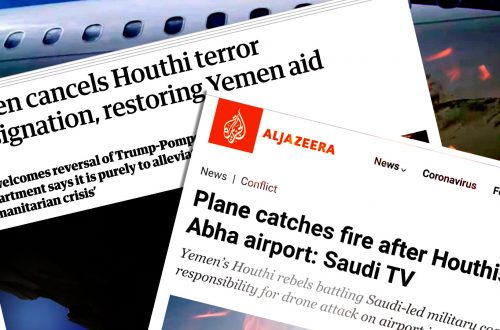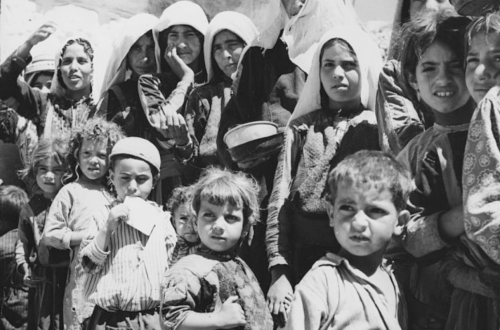Cross-posted from Aymenn Jawad al-Tamimi
The Obama administration is risking a fourth war in the Muslim world, escalating covert air attacks in Yemen. The danger of being trapped in an endless, costly, bloody quagmire should worry every American. The political dynamics of Yemen are poorly understood, and the administration risks being manipulated and exploited by forces it at best dimly comprehends.
On June 4, the Yemeni president Ali Abdullah Saleh, after being wounded in a rocket attack, fled to Saudi Arabia for treatment. Though he has vowed to return to Yemen, his injuries are more serious than previously thought, with burns across 40% of his body and bleeding inside his skull. With the prospect of his return highly unlikely, it is safe to say that he has in effect been ousted from power. Does this alter the situation in Yemen to any significant degree?
What appears to have marked the turning point in Saleh’s fortunes was the conflict that recently arose between him and elements of the northern Hashid tribe’s leadership, which also heads the Islamist opposition party known as “Islah.” Previously, the president had good relations with the Hashid and Islah (despite formally disassociating his party from Islah in 1997) because he shared the same enemies as those of Abdullah bin Hussein al-Ahmar, who was the head of the tribe until 2007 and whose family is still the most powerful ruling clan in the Hashid.
Over the years, the two fought the communist People’s Democratic Republic of Yemen, the Marxist National Liberation Front in the early 1980s, the Yemeni Socialist Party during the civil war of May-July 1994, and the Zaydi Shi’a Houthi rebellion in the far north over the past decade. However, since protests first began in the country and General Ali Muhsin al-Ahmar defected, relations between Saleh and the Hashid have deteriorated, especially when the former launched an attack on a compound belonging to the al-Ahmar clan in Hasaba. Consequently, Saleh’s miscalculated assault has provoked outright warfare between many Hashid tribesmen and battalions of the Yemeni military still loyal to Saleh and his faction of supporters.
Meanwhile, other groups have not hesitated to take advantage of the anarchy that has ensued in the country. The Houthis, who have largely been left alone since demonstrations began, have recently been able to extend their power base towards the south and east through various tribal alliances, no longer content with just autonomy in their home province. This is of concern to Saudi Arabia because the Houthis are Zaydi Shi’a and thus in the Saudis’ view prone to Iranian influence. Indeed, it was for such a reason that Saudi Arabia backed Hashid tribesmen in the north as a proxy force against the Houthis while conducting airstrikes of its own against Houthi rebels. In similar vein, Saleh diverted Western military aid for fighting Al-Qa’ida in the Arabian Peninsula (AQAP) towards suppressing the Houthis. Nevertheless, there is no evidence of links between the Houthis and Iran, as U.S. diplomats realized in cables that have been disclosed by Wikileaks. Furthermore, the Houthis were actually able to rout the Hashid tribesmen who were fighting them after 2007, following the death of Abdullah al-Ahmar.
Hence, the key problem any transition government in Yemen will have to face is the competition between different factions for power. This includes the Houthis, the Hashid tribe, secular southern separatists, Islamists from the Islah party, youth-led protestors and loyalists to Saleh. Achieving a viable form of political reconciliation seems to be an impossible goal. Yet even if a balance could be struck between the numerous, contrary demands of the groups striving for power, two other crises are posing an existential challenge to Yemen:
Water shortages: Besides cholera outbreaks in the south, available drinking water in the mountainous areas, normally drawn from springs, has decreased to less than a quart per person each day. Aquifers are being mined such that groundwater levels have fallen by 10-20 feet every year. One of the most important contributing factors for water depletion is irrigation (artificial watering) of khat, used to make a drug for chewing and taking up some 27-30% of Yemen’s ground water supply. In fact, many speculate that Sanaa — the country’s capital (and on a personal note, where a maternal great-uncle of mine and his son live, after the former divorced his German wife) — could be the first capital city in the world to run out of water. Already, the city is mainly dependent on water supplies delivered by trucks. A solution could be found in pumping desalinated water from the Red Sea, but that would push the price of water up to $10 per cubic meter, excluding the additional expenses of transporting the water 7500 feet up towards Sanaa. It seems highly improbable that a future, tottering Yemeni administration could meet such a cost.
Economic collapse: Oil reserves — one of the main sources of income for Yemen in providing around 90% of exports — are dwindling at an ever-increasing pace. The World Bank predicts that the country’s oil and gas revenues will fall to zero by 2017. On a more anecdotal level, it is reported that “trucks and buses at petrol stations” within the country now “queue for hours.” In March, local tribes in Marib (eastern Yemen, home to most of the country’s oil and gas supplies) blew up crucial oil pipelines, causing revenue losses of $300-400 million a month. In the meantime, the population is expanding rapidly. The current population of 24 million is expected to double in size within 30 years and has an average fertility of 6.5 children per woman.
All this has the potential to trigger a massive outflow of refugees that would hit neighboring Oman particularly hard. A state of anarchy — not unlike that in Somalia — seems likely, and if AQAP realizes that it would be impossible to unite Yemen under an Islamic state, the organization will probably decide to stick with its current foothold as a base in the country and begin to focus on conducting operations abroad. Of course, such an outcome poses a particular risk to United States, given the fact that Umar Farouk Abdulmutallab — the failed “Christmas Day” bomber — is thought to have received training in Yemen through the American-born cleric Anwar al-Awlaki. Hence, those who see anarchy in Yemen as a good thing vis-à-vis American security interests are quite mistaken.
Is there anything we can do to mitigate what appears to be a catastrophe in waiting? Unfortunately, the de facto ousting of Saleh from power has come far too late, and military intervention on the ground is out of question, given the present expenditures on operations in Afghanistan, Iraq, and Libya, as well as Saudi fears and the complex internal politics of Yemen. Likewise, backing one faction as a stabilizing force against AQAP is now untenable. Although, for example, AQAP has declared jihad against the Houthis, in practice there has been no warfare between the two groups since the protests against Saleh began. Thus, as in Bahrain, our options are severely restricted. The best course of action is for the U.S. to retreat militarily from Yemen by halting these air strikes, issuing a warning to AQAP that any foreign aggression will be met with severe retaliation as part of a containment strategy.

